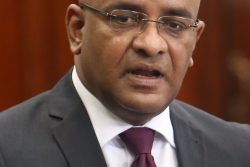NEW YORK, (Reuters) – McDonald’s, PepsiCo, Coca-Cola and Starbucks stopped sales of their best-known products in Russia yesterday, offering a united rebuke of the war on Ukraine by companies that define America for much of the world.
Pepsi and McDonald’s were corporate pioneers whose work with the Soviet Union and the post-Soviet Russian state decades ago were seen as improving international relations.
All four companies have major operations in Russia.
McDonald’s said it would go on paying salaries to its 62,000 employees in Russia as it closed 847 restaurants. The first location to open in Russia, in central Moscow’s Pushkin Square in 1990, became a symbol of flourishing American capitalism as the Soviet Union fell.
“I’m glad they came around and made the right decision,” Jeffrey Sonnenfeld, a professor at the Yale School of Management who is tracking major companies’ stances on Russia, said after the move by McDonald’s. “It’s a really important impact, and it’s symbolic as much as it is substantive.”
Starbucks Corp SBUX.O is temporarily closing hundreds of stores. PepsiCo Inc PEP.O will suspend all advertising in Russia and stop the sale of its drinks brands, while continuing to sell essentials such as milk and baby food. Rival Coca-Cola Co KO.N said it will suspend its business there.
Coca-Cola was the official drink of the 1980 Olympic Games in Moscow, despite the United States boycotting the event in protest of the Soviet invasion of Afghanistan.
Scores of other companies also have rebuked Russia, and Amazon.com Inc AMZN.O said on Tuesday it would stop accepting new customers for its cloud services in Russia and Ukraine. Universal Music suspended all operations in Russia, and online dating service Bumble Inc will remove its apps from stores in Russia and Belarus.
Earlier, Royal Dutch Shell Plc RDSa.L stopped buying oil from Russia and said it would cut links to the country entirely while the United States stepped up its campaign to punish Moscow by banning Russian oil and energy imports.
Moscow has termed the attack a “special military operation” aimed not at occupying territory but at destroying Ukraine’s military capabilities.
The West’s moves to isolate Russia economically for attacking its neighbour have hit hard global commodity and energy markets, sending prices soaring and threatening to derail the nascent recovery from the COVID-19 pandemic.
Britain too said it would ban imports of Russian oil but only by gradually phasing them out during 2022 to give businesses time to find alternative sources of supply.
Texas man guilty for role in assault on U.S. Capitol in landmark win for prosecutors
WASHINGTON, (Reuters) – A Texas man who joined the Jan. 6, 2021, assault on the U.S. Capitol by supporters of former President Donald Trump was found guilty for his role in the attack yesterday, a milestone victory for federal prosecutors in the first such case to go before a jury.
The defendant, Guy Reffitt, was found guilty on all five of the felony charges he faced, including bringing a gun onto the Capitol grounds and obstructing an official proceeding.
Reffitt’s trial was seen as an important test case as the U.S. Justice Department attempts to secure convictions from the hundreds of defendants who have not taken plea deals.
The federal jury in Washington returned the unanimous verdict after just two hours of deliberation.
Reffitt, who is currently in custody, will learn the length of his prison sentence at a court hearing scheduled for June 8. Reffitt faces up to 20 years in prison, although defendants rarely get the maximum sentence.
Reffitt never entered the Capitol, but video showed him egging on the crowd and leading other rioters up a set of stairs outside the building.





